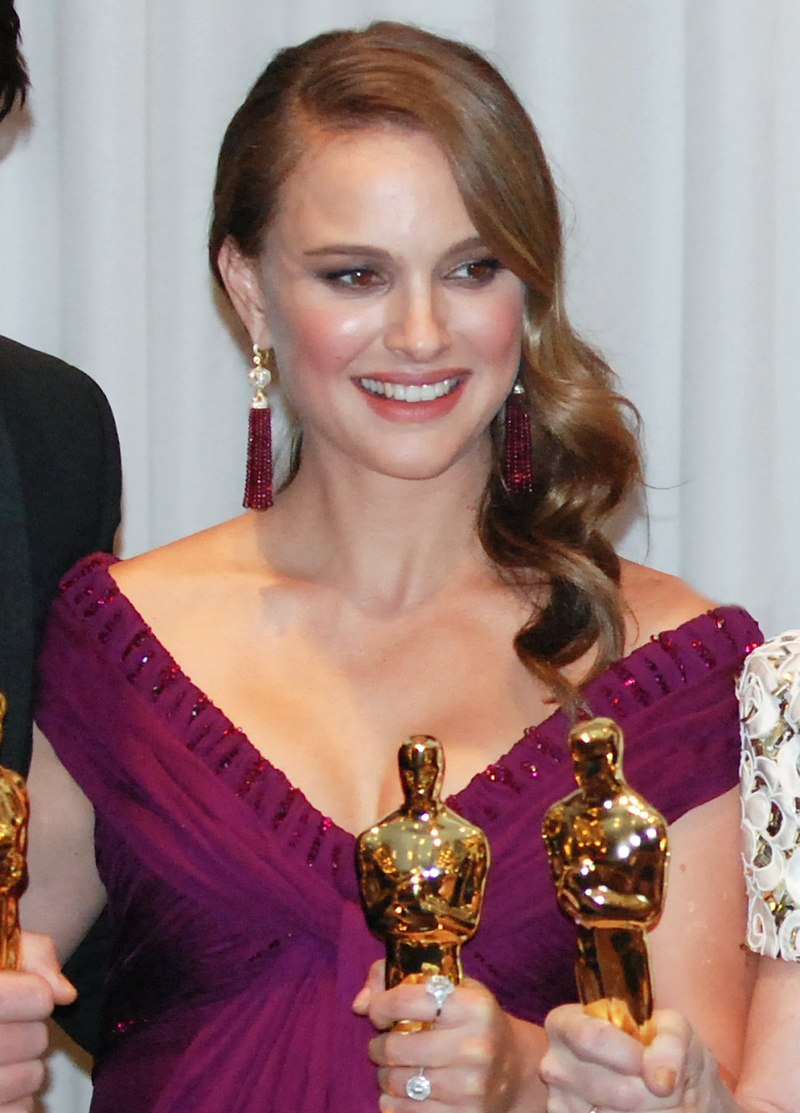 |
| Lazo, Carlos "Natalie Portman AA" 10/3/15 via Wikipedia. Public Domain. |
- I believe, along with society, that greatness should be recognized and rewarded. I think that the subjectivity of "greatness" causes most of the cultural divide about which movies accomplish greatness and which do not. I also believe that the norm of being amazed by visual effects is something that applys to me. I think that both of these aspects of culture have endured and become such an integral part of society because of animal instincts. Anything that is done at an extent that is more incredible than what is around it makes us feel something profund, just as amazing CGI or special effects do as well.
2. What cultural or social values, beliefs, etc., do we not share? Why not?
-The cultural assumption that physical change can not be an indicator of skill in film is one that I do not agree with. I think that any drastic change to oneself requires extreme dedication and skill, and is just one of the tools that an actor has available to them in order to become the character. To say that physical transformation is not the work of a skilled actor oversimplifies the reality of being in theater.
3. If the text is written in a culture distant or different from our own, what social values, beliefs, etc., connect to or reflect my own culture? What social values, beliefs, etc., can I not see in my own culture?
-This article was written in my American culture, but I think that my "Arizona culture" differs a little bit from the one presented in the article. Being a western, more conservative state that is not an epicenter for entertainment like New York or Los Angeles, I think that the author's cultural assumption that everyone looks for the same kind of greatness does not apply. The cultural discussion in our state might have more to do with the moral values presented in the film rather than the cinematic qualities.
4. If the text is written in our culture but in a different historical time, how have the social values, beliefs, etc., developed or changed over time?
-This article was written recently, so the cultural aspects have remained fairly the same. However, as CGI has evolved and become more and more refined, the expectations that people have visually for a film have gotten higher. It is now an requirement that sci-fi or action blockbusters have visually amazing/shocking/beautiful sequences through CGI.
--------------------------------------------------------------------------------------------------------------------------
Reflection:
As I browsed Cynthia and Thomas' blog posts. I was shocked by how much we all talked about agreeing with the cultural assumptions present in our articles. I was reminded of the idea that millenials are "rebels" and "nonconformists." In reality, we all follow the same invisible rules and expectations that govern society, whether we realize it or not. Our personal biases with regards to cultural aspects are virtually nonexistant, because we generally agree with everything that the author culturally assumes. Maybe if this article was written in a different time or place, the result would be different.
I definitely agree with your perspective. Movies have become more than the actors that are in it, but great actors are needed to maintain a great film nonetheless. A movie can be visually stunning, yet terribly acted (I give you... Twilight!). The movies that have become increasingly popular, however, require intense visuals, and skilled actors to hold their own. You have chosen a great topic, and I can tell that it really makes an impact on you.
ReplyDeleteThe way you answered these assumption questions were very thoughtful and fully fleshed out. I find interesting that you disagreed with a point made in the article because I didn't disagree with anything my author said. Next, your look into the different culture that Arizona has instead of an epicenter of entertainment like Los Angeles and how that might influence your own thoughts was a great way to look at your self through self reflection. Great job!
ReplyDelete